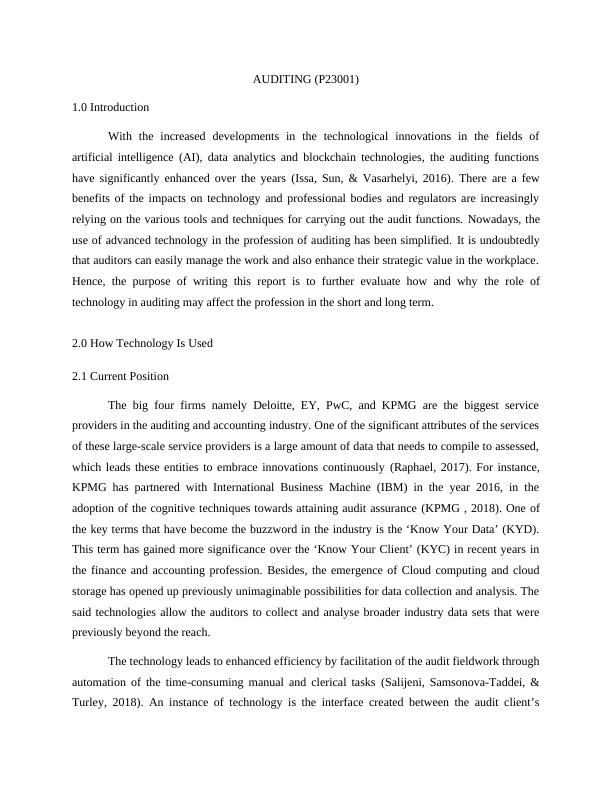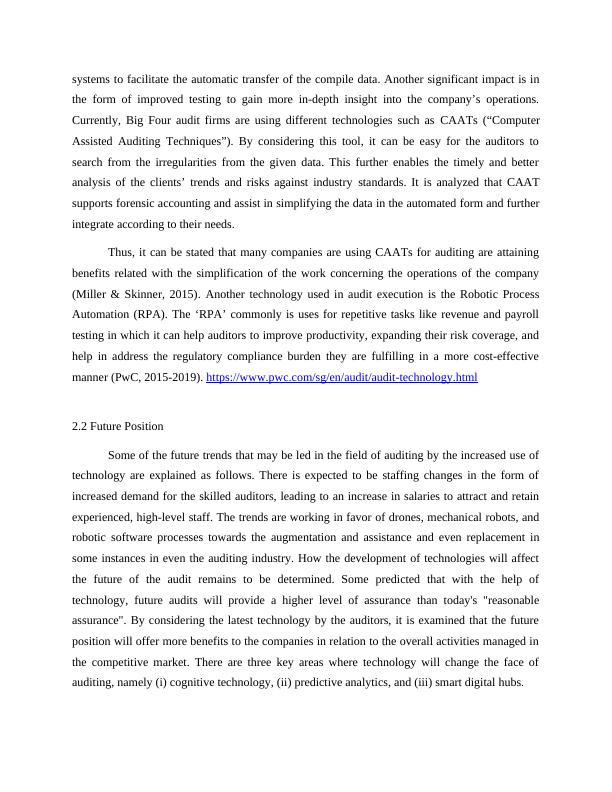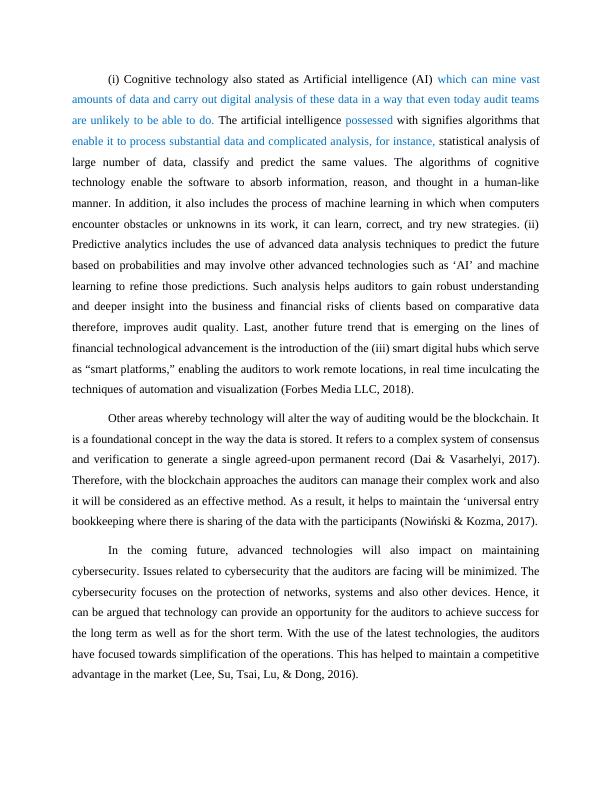The Impact of Technology on Auditing: Current and Future Position
Evaluate the role of technology in auditing and its impact on the profession in the short and long term.
9 Pages3392 Words172 Views
Added on 2023-06-04
About This Document
This report evaluates the impact of technology on auditing, including current and future positions. It discusses how technology is currently used in auditing, such as CAATs and RPA, and how it will change the face of auditing in the future, including cognitive technology, predictive analytics, and smart digital hubs. The report also explores the changing role of auditors in a future environment and the skills required, such as advanced technological know-how, project management skills, and innovation.
The Impact of Technology on Auditing: Current and Future Position
Evaluate the role of technology in auditing and its impact on the profession in the short and long term.
Added on 2023-06-04
ShareRelated Documents
End of preview
Want to access all the pages? Upload your documents or become a member.
Technological Impact on Audit Functions: Analysis of Big Four Firms
|3
|1053
|286
Auditing and Assurance Services: Analysis of Factors Impacting Audit Quality in Australia
|13
|3354
|306
Auditing and Assurance in Australia
|11
|3324
|160
Evidence in Support of Comments made in Email 4 Reference 8 Email Draft to- From- Senior Auditor CC- Date- September 24, 2019 Subject- Development of Technology in Auditing
|11
|2210
|286
Auditing: Industry 4.0, GDPR, VUCA, NOCLAR
|13
|2839
|469
Importance of Fintech in Banking Sector
|9
|2039
|97



